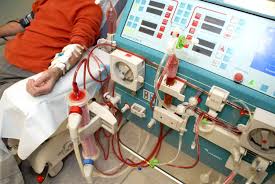A recent study conducted by Stanford University has raised important questions about the feasibility and benefits of dialysis for older adults with kidney failure, particularly those aged 75 or older. The research suggests that for some elderly patients, dialysis may offer only minimal extension of life while significantly increasing the time spent in hospitals.
Limited Lifespan Extension
The study found that initiating dialysis in older adults might only extend life by a matter of days. On average, patients who began dialysis immediately lived just nine days longer than those who delayed or avoided the procedure altogether. This marginal increase in lifespan comes with a substantial trade-off: patients who underwent dialysis spent an additional 13 days in the hospital, which can be burdensome for both the patients and their families.
Age-Specific Outcomes
The study’s findings are particularly nuanced when examining different age groups within the elderly population. Patients aged 80 and above who started dialysis immediately survived an average of 60 additional days but spent 13 of those days in an inpatient facility. In contrast, those aged 65 to 79 who started dialysis right away lived an average of 17 fewer days than those who delayed the procedure but still faced extended hospital stays.
Implications for Clinical Decision-Making
The researchers utilized electronic health records to simulate a randomized clinical trial, dividing patients into two groups: those who began dialysis immediately and those who delayed treatment for at least a month. Remarkably, about 50% of the patients in the delayed group did not initiate dialysis within three years, highlighting that the necessity of the procedure may not be as clear-cut as often believed.
Maria Montez Rath, a senior research engineer at Stanford University and one of the study’s lead authors, emphasized that while early initiation of dialysis may slightly improve survival rates, it also increases the likelihood of prolonged hospitalization and associated burdens.
Rethinking Dialysis as a Treatment Option
Dialysis is commonly presented as a life-saving procedure, which can lead patients and their families to overestimate its benefits. The study advocates for a more nuanced discussion, suggesting that framing dialysis as a means of symptom alleviation rather than a straightforward choice between life and death could help patients better understand the trade-offs involved.
Given these findings, the researchers urge healthcare providers to consider the overall quality of life and potential hospitalizations when recommending dialysis to elderly patients. The study underscores the need for personalized care approaches, taking into account the unique circumstances and preferences of each patient.
Conclusion
This study provides crucial insights into the complexities of dialysis treatment for older adults with kidney failure. As the population ages, the medical community must carefully weigh the benefits and drawbacks of such interventions, ensuring that patients receive care that aligns with their values and priorities.











